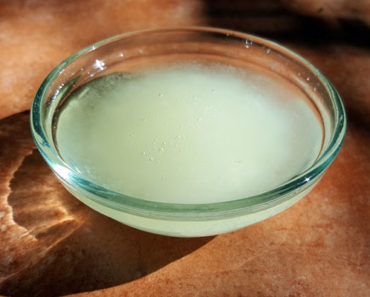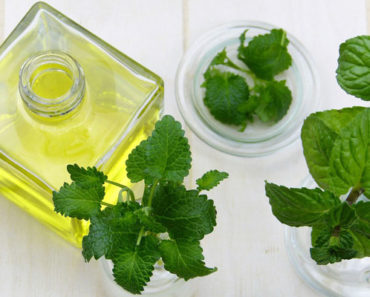Many people like to give supplements to their dogs in order to keep them happy and healthy. Some dogs with health conditions can also benefit from this supplement. Many pet owners may also appreciate how a high-quality salmon oil for dogs can be a safe treat that’s free from fillers and harmful ingredients.
Salmon oil for dogs can be a beneficial way to help your puppies and full grown dogs to stay healthy and active. It can boost their cognitive function, maintain healthy bones and even act as an anti-inflammatory for skin conditions and internal diseases.
What Is Salmon Oil?
Salmon oil is sourced from salmon, a type of fish that can be both wild, freshwater, or farmed. It can benefit every age of dog and breed of dog, and be a good supplement, no matter what type of diet your dog has. Salmon oil can be one of the most beneficial supplements that you can give every dog member in your family.
The process to make salmon oil or fish oil is the same. It’s done in a fish processing plant. The fish is first chopped up into pieces and then steam cooked. This fish is then pressed or centrifuged to separate the oil & water from the dry solids. The solids are processed into fish meal, which is often used for animal feed.
The oil and water is separated. The oil then undergoes a process called polishing so that impurities are removed with a hot water process. This also makes the oil safe for consumption by humans, or dogs and cats. The final step of the process involves adding anti-oxidants to the oil, before it’s stored in stainless steel containers, then poured into bottles and distributed to the consumer market.
How Salmon Oil Can Benefit Your Dogs
Salmon oil is also good to give a dog with skin conditions as it contains many of the essential fatty acids to help maintain skin cell growth. Fatty acids are utilized by every cell in the body, and will help their immune system to function better, and their skin conditions to heal. It may even help in the prevention of cancers in dogs.
Salmon oil is beneficial to the health of dogs (also cats and humans too!) as it contains essential fatty acids that every mammal on the planet needs. The best fatty acids are in the omega-3 types. Two of the best in salmon oil for dogs are EPA (eicosapentaenoic acid) and DHA (docosahexaenoic acid).
Besides these omega-3 fatty acids, there are also two main types. The long-chain omega-3 fatty acids contain DHA and EPA. These types are present in fish and shellfish. Sea algae also contains DHA, but not EPA.
The other types contains short-chain fatty acids such as ALA (alpha-linolenic acid). This is the type found in flaxseed and plants. You can still obtain the healthy benefits but this type but you’ll have to eat higher quantities.
Consuming salmon oil is a much easier way to obtain all the fatty acids that a dog needs in their diet. They could eat fish, but wouldn’t be able to consume enough of it to make it matter for their health. Or, they could, but may put on weight!
Since salmon oil is so beneficial to dogs, it’s often present in wet and dry dog foods. Salmon oil is also a common ingredient in cat foods, as cats need the special supplement of taurine, which is also present in fish oils.
Many dog food manufacturers are realizing that salmon oil is just as important for dogs as it is for cats, so you should be seeing it as an ingredient on many more pet food labels over the next year or so.
Until that happens, giving your dog a bit of salmon oil once a day will ensure they have all their essential fatty acids.
What Types of Benefits Can Salmon Oil Give My Dog?
The long-chain fatty acids are best to give your dog because dogs are naturally carnivorous and don’t require the varied diet that can benefit humans. If dogs lack sufficient fatty acids they can suffer deficiencies, same as humans can. These include skin conditions such as eczema, psoriasis, hair or fur loss, slow wound healing, slow growth from puppy to adult, lowered renal function, liver disorders, decreased immune function, and many other diseases and health issues.
Veterinarians recommend that supplements for dogs contain EPA and DHA. Salmon oil is perhaps the best source of fatty acids for dogs.
Salmon oil can help your dog’s coat to grow in thicker and shinier. It can also help to balance their skin, particularly if it’s dry, itchy, or flaky.
Internal benefits for dogs can include helping to reduce inflammation and arthritis. It can help to regulate your dog’s immune system and their digestive system. The oil can also help to calm overactive immune systems for dogs that suffer allergies or other autoimmune diseases.
Salmon oil is especially beneficial for puppies as it can help their cognitive function. It’s great to give when you’re training them as puppies to learn the rules of the house, and to perform tricks.
If you have an older dog, the salmon oil will help keep their cognitive function from declining, and prevent diseases related to aging. Salmon oil is beneficial in preventing and lowering any joint problems as your dog ages.
The oil can also help with organ functions. It can help to lower high blood pressure in dogs, and regular high levels of triglycerides or cholesterol. It can provide support for dogs who suffer kidney disease. It can help lower the frequency of urination and help to increase a dog’s appetite when they may not be eating.
The salmon oil is also beneficial at preventing all types of cancerous growths in dogs. If a dog already has been diagnosed with cancer, salmon oil has been proven to slow cancer cell growth.
Salmon oil is a great weight loss supplement for dogs as it can help provide nutrients at a time when you’re cutting down on food for your pet.
Why Should I Choose Salmon Oil vs. Fish Oil?
There are many different types of fish oil, including generic fish oil, salmon oil, and cod liver oil. Read the labels, as they’ll tell you the sources of the fish oil. Naturally, salmon oil is made from salmon, while cod liver oil is made from the livers of cod.
If the label says fish oil, then most likely it’s going to be a byproduct of the animal feed industry’s production of ground up fish meal. This fish can vary, but includes anchovy, herring, sardine, and mackerel. The fish is usually from the coasts of South America or North Africa. The oil is then refined, which is usually in Norway, hence the “Made in Norway” label.
Fish oil is a much cheaper version of oil and is produced quickly with fewer goals for quality. This type of oil can give you the burps, dogs included. While there are new techniques to try and make fish oil taste better, there’s only so much they can do.
Salmon oil is actually sourced from the parts of salmon that aren’t eaten for your dinner. Usually it’s made from sea-farmed salmon, rather than freshwater or freshwater fish farmed salmon. It tastes slightly better than fish oil.
Sea-farmed salmon oil often has a shortened manufacturing span, so many people prefer to give this type to their dogs, as it’s fresher.
Salmon oil contains less saturated fats than fish oils, which is a concern for when you’re giving them to dogs too, as they suffer the same diseases that humans do.
Salmon oil may contain fewer nutrients though, and have lower omega-3 levels when compared to other sources that go into fish oil. Salmon oil is also more expensive than fish oil.
Dogs do have a more sensitive constitution than adults, and some types of fish and shellfish are harmful to give them. There may also be the concern of mercury. For this reason, salmon oil is often the safer type of fish oil to give your dogs than generic fish oil. If you’re taking a supplement for your own health, then you’ll have to decide which is right for you.
There is virtually no difference in how salmon oil is made for dogs or humans. However, read the labels carefully before you buy, as supplements can often contain other ingredients. Look for one that says “FOR DOGS” to ensure that it’s 100% safe to give to your dog(s).
Proper Salmon Oil Dosage for My Dog
Before you give salmon oil to your dog as a treat, as a supplement, or to help their health condition, read the label carefully for proper dosage.
These may be general requirements but will give you a basic idea of what to expect when you give salmon oil to your dog.
0-26 lb dogs – 4 ml – 0.14 oz
26-53 lb dogs – 8 ml – 0.27 oz
53-106 lb dogs – 12 ml – 0.40 oz
106 lb+ dogs – 16 ml – 0.54 oz
How Do I Give Salmon Oil to My Dog?
Now that you’ve decided that salmon oil is one of the best supplements to give to your dog, you may be wondering how to give it to them. Try some of these methods, particularly if they’re finicky eaters.
- Pour some oil in a large spoon and have your dog lick it up.
- Mix it with their food. Wet dog food is best, as it already contains moisture. Dogs are also more likely to eat up all their wet food, rather than mixing it with dry food that they may leave in the bowl. The dry food can spoil faster when mixed with oil, making it a more costly expense.
- Suck the oil into a syringe or medicine dropper and directly squeeze it into the side of their mouth.
- Mix it in with water or meat broth.
Salmon oil is naturally greasy, so you’ll want to find a good way to give it to your dog.
How to Choose the Safest & Most Effective Salmon Oil for Dogs?
Just like there are different types of fish oil supplements for pet owners, there are also different types of salmon oil for pets. If you’re searching for a good salmon oil for your dog, ensure that it specifically says salmon oil on the label.
There are also different types of salmon sourced to make the oil. Two types are kronch salmon and grizzly salmon.
Can There Be Salmon Oil Side Effects for Dogs?
No matter what type of food or supplement you give your dog, it’s the same as giving supplements to any type of mammal (humans included), there is a slight chance of reactions and side effects. If any of the following happen, stop giving them salmon oil and consult a vet for better options.
- If you give your dog too much salmon oil, he can put on weight, particularly if he’s a smaller dog breed.
- Salmon oil can cause bad fishy breath, so you may choose to give before dinner, or before you set out their bowl of water.
- They may get a bad stomachache or suffer diarrhea.
- They may get dizzy or nauseous, or suffer allergic reactions.
- Some dog owners are allergic to salmon and fish, so be cautious if you’re giving the oil to your pets. You should also be aware that new research suggests that the foods our pets eat can contribute to our own allergies of their saliva and coat.
Closing Thoughts on Giving Salmon Oil to Dogs
Most dogs will lap up a spoonful of salmon oil that provides extra fatty acids to benefit coat, skin, and body cells and organs. If your dog has a health condition or disease, ask the vet about adding salmon oil as a supplement to their diet. Salmon oil is a simple and easy way to ensure that your dog has a long and healthy life with you..








